Medical articles
Lyme disease testing?
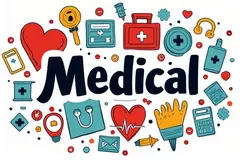 Lyme Disease Testing: A Comprehensive Guide
Diagnosing Lyme disease can be a complex process, often involving multiple tests and medical consultations. This guide aims to provide clarity on the accuracy of various testing methods, optimal times for testing, understanding false positives and negatives, and more.
How Accurate Are Lyme Disease Tests?
The... read more...
Lyme Disease Testing: A Comprehensive Guide
Diagnosing Lyme disease can be a complex process, often involving multiple tests and medical consultations. This guide aims to provide clarity on the accuracy of various testing methods, optimal times for testing, understanding false positives and negatives, and more.
How Accurate Are Lyme Disease Tests?
The... read more...
Blood pressure control?
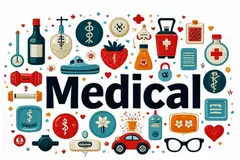 How to Lower Blood Pressure Naturally?
Lowering blood pressure naturally involves adopting a healthy lifestyle with regular exercise, proper diet, stress management, and limiting alcohol intake. These measures are crucial for maintaining cardiovascular health.
Eat a balanced diet: Focus on fruits, vegetables, whole grains, lean proteins, and low-fat dairy... read more...
How to Lower Blood Pressure Naturally?
Lowering blood pressure naturally involves adopting a healthy lifestyle with regular exercise, proper diet, stress management, and limiting alcohol intake. These measures are crucial for maintaining cardiovascular health.
Eat a balanced diet: Focus on fruits, vegetables, whole grains, lean proteins, and low-fat dairy... read more...
What are signs of sepsis?
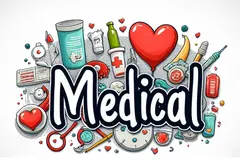 Signs of Sepsis: What You Need to Know
Sepsis is a potentially life-threatening condition that occurs when the body's response to an infection damages its own tissues and organs. Recognizing the early signs of sepsis can be crucial in preventing severe complications or even death. This article aims to provide comprehensive information on identifying sepsis... read more...
Signs of Sepsis: What You Need to Know
Sepsis is a potentially life-threatening condition that occurs when the body's response to an infection damages its own tissues and organs. Recognizing the early signs of sepsis can be crucial in preventing severe complications or even death. This article aims to provide comprehensive information on identifying sepsis... read more...
Is there a cure for chronic fatigue syndrome?
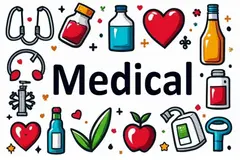 Is There Hope for Chronic Fatigue Cure?
Chronic fatigue syndrome (CFS), also known as myalgic encephalomyelitis (ME/CFS), is a debilitating condition characterized by profound and unrelenting exhaustion that doesn't improve with rest. The search for effective treatments and potential cures has been ongoing, but the question remains: Is there hope for a... read more...
Is There Hope for Chronic Fatigue Cure?
Chronic fatigue syndrome (CFS), also known as myalgic encephalomyelitis (ME/CFS), is a debilitating condition characterized by profound and unrelenting exhaustion that doesn't improve with rest. The search for effective treatments and potential cures has been ongoing, but the question remains: Is there hope for a... read more...
Antioxidants: types, benefits, and sources in diet
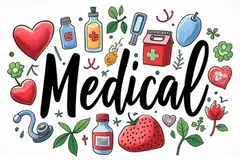 Understanding the power of antioxidants is crucial for maintaining optimal health. Antioxidants are essential nutrients that play a vital role in protecting your body from oxidative stress and free radicals. These powerful compounds help to neutralize harmful molecules, thereby reducing inflammation and supporting overall well-being.
Understanding the Power... read more...
Understanding the power of antioxidants is crucial for maintaining optimal health. Antioxidants are essential nutrients that play a vital role in protecting your body from oxidative stress and free radicals. These powerful compounds help to neutralize harmful molecules, thereby reducing inflammation and supporting overall well-being.
Understanding the Power... read more...
Lowering High Cholesterol Naturally
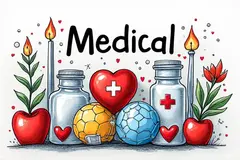 High Blood Cholesterol: Understanding and Managing Your Levels
High blood cholesterol is a common condition that affects millions of people worldwide. It can lead to serious cardiovascular issues if left unchecked. This article will guide you through understanding your cholesterol levels, natural ways to lower high cholesterol, dietary choices, and the... read more...
High Blood Cholesterol: Understanding and Managing Your Levels
High blood cholesterol is a common condition that affects millions of people worldwide. It can lead to serious cardiovascular issues if left unchecked. This article will guide you through understanding your cholesterol levels, natural ways to lower high cholesterol, dietary choices, and the... read more...
Effects of high BP?
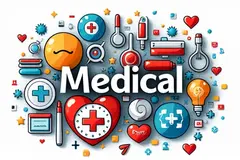 Understanding the Effects of High Blood Pressure on Your Health
High blood pressure, or hypertension, is a serious health condition that can have far-reaching consequences if left untreated. This article delves into how high blood pressure affects various parts of your body and why it's crucial to manage this silent killer effectively.
How High Blood... read more...
Understanding the Effects of High Blood Pressure on Your Health
High blood pressure, or hypertension, is a serious health condition that can have far-reaching consequences if left untreated. This article delves into how high blood pressure affects various parts of your body and why it's crucial to manage this silent killer effectively.
How High Blood... read more...
Can probiotics ease IBS?
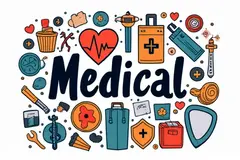 Can Probiotics Alleviate IBS Pain?
Irritable Bowel Syndrome (IBS) is a common digestive disorder that affects millions of people worldwide, causing symptoms such as bloating, cramping, and irregular bowel movements. For those suffering from IBS, finding effective relief can be challenging. One potential solution gaining attention is the use of... read more...
Can Probiotics Alleviate IBS Pain?
Irritable Bowel Syndrome (IBS) is a common digestive disorder that affects millions of people worldwide, causing symptoms such as bloating, cramping, and irregular bowel movements. For those suffering from IBS, finding effective relief can be challenging. One potential solution gaining attention is the use of... read more...
What is medical studies?
 Medical studies encompass a broad range of academic and research activities aimed at advancing knowledge in healthcare, disease prevention, treatment methods, and patient care. This field offers numerous opportunities for those interested in contributing to the medical community through rigorous education and hands-on experience.
Why Study Medicine?
The... read more...
Medical studies encompass a broad range of academic and research activities aimed at advancing knowledge in healthcare, disease prevention, treatment methods, and patient care. This field offers numerous opportunities for those interested in contributing to the medical community through rigorous education and hands-on experience.
Why Study Medicine?
The... read more...
Types of mental health disorders?
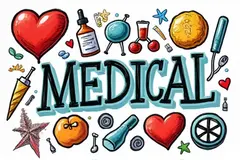 Types of Mental Health Disorders
Mental health disorders are complex conditions that affect millions of people worldwide. Understanding these disorders is crucial for early diagnosis, effective treatment, and overall well-being. This article delves into the most common types of mental health disorders, providing insights into their symptoms, impacts, and... read more...
Types of Mental Health Disorders
Mental health disorders are complex conditions that affect millions of people worldwide. Understanding these disorders is crucial for early diagnosis, effective treatment, and overall well-being. This article delves into the most common types of mental health disorders, providing insights into their symptoms, impacts, and... read more...
Can people be born with ADHD?
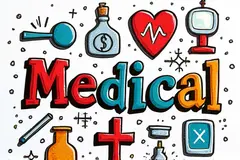 Are You Born With ADHD?
Attention Deficit Hyperactivity Disorder (ADHD) is a neurodevelopmental condition that affects millions of people worldwide. One common question that arises when discussing ADHD is whether it can be present from birth or if it develops over time due to environmental factors. This article delves into the origins and genetic links... read more...
Are You Born With ADHD?
Attention Deficit Hyperactivity Disorder (ADHD) is a neurodevelopmental condition that affects millions of people worldwide. One common question that arises when discussing ADHD is whether it can be present from birth or if it develops over time due to environmental factors. This article delves into the origins and genetic links... read more...
Are there foods that can help with hangovers?
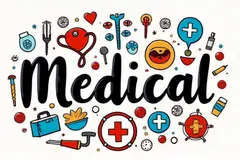 Hangovers are no fun. They can leave you feeling dehydrated, nauseous, and exhausted after a night of drinking. While there's no magic cure for hangovers, certain foods can help alleviate symptoms and speed up recovery. This article explores the best food options to combat hangover effects and offers tips on how to eat to avoid them in the first place.
Top... read more...
Hangovers are no fun. They can leave you feeling dehydrated, nauseous, and exhausted after a night of drinking. While there's no magic cure for hangovers, certain foods can help alleviate symptoms and speed up recovery. This article explores the best food options to combat hangover effects and offers tips on how to eat to avoid them in the first place.
Top... read more...